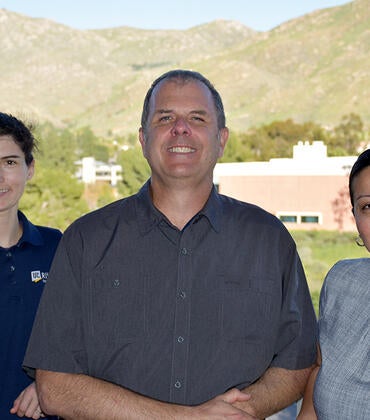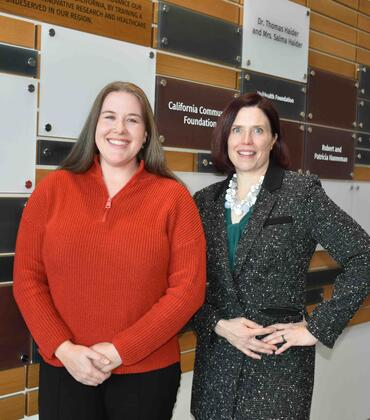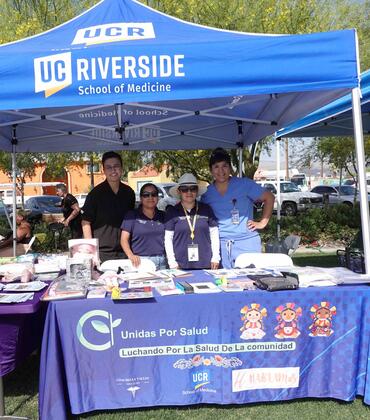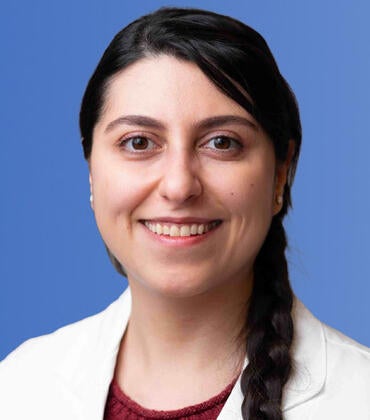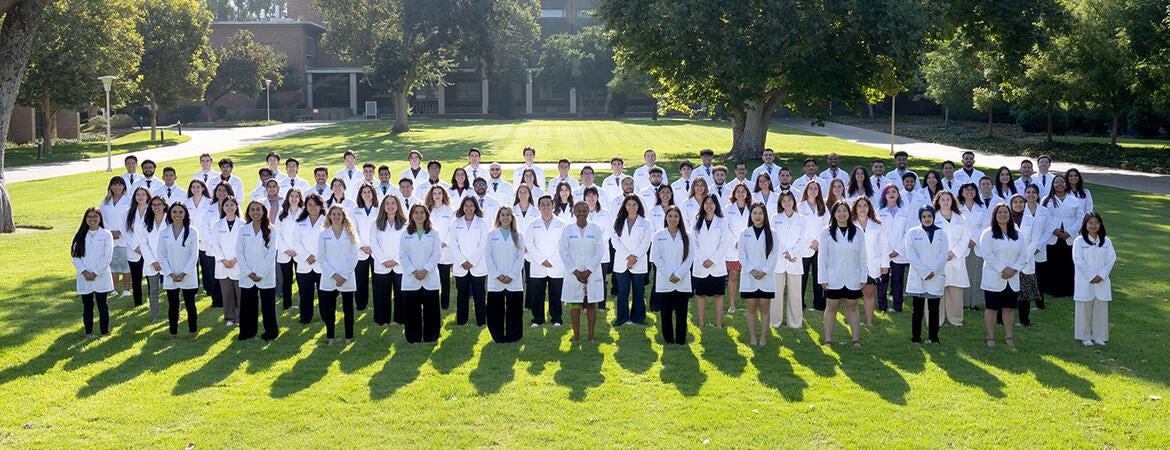
The UCR School of Medicine’s 2024 White Coat Ceremony, held on Friday, August 9, welcomed 87 new medical students and five PhD candidates in biomedical sciences. The annual event presents each incoming class with white coats to symbolize the beginning of their journey into medicine.
Deborah Deas, MD, MPH, the vice chancellor for health sciences and the Mark and Pam Rubin dean of the School of Medicine, welcomed the class of 2028 before extending a special welcome to their family and friends in the audience. "While this evening is devoted to recognizing our medical and biomedical sciences students who are entering the first chapter of their lives as future physicians and researchers, we also celebrate what you have done, and will continue to do, to support them throughout their journey in medical and graduate school," she said.
"Soon you will receive your first white coats, representing the start of your medical training, your exploration in biomedical sciences research exploration, and your first interactions with patients,” Deas told the new students. “You are among the few chosen to walk this challenging and rewarding path,” she added. “May you wear the white coat with honor throughout your career."
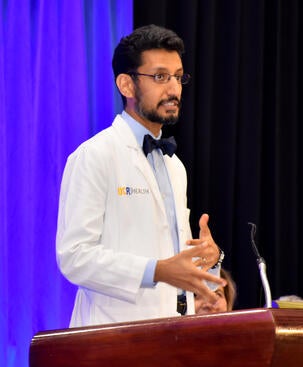
Moazzum Bajwa, MD, co-director of the Longitudinal Ambulatory Care Experience (LACE) program and associate clinical professor for health sciences at the SOM, presented the keynote speech.
Bajwa described the quiet rage he has developed during his years as a physician from witnessing health and income disparities in the community. “My sincere hope is that you chose UCR because you recognize that injustice and you want to do something about it,” he said.
Bajwa urged the class of 2028 to turn their own anger into collective action. “This is the part where I’m supposed to ask you to close your eyes and imagine where you will be in 10 years--but we can’t wait that long for you to share your brilliance with our community,” he said. “Your patients cannot wait.”
“Transform that anger into action,” Bajwa continued. “It will make every day of studying a labor of love.”
Over half (63%) of the class of 2028 grew up in a medically underserved region and around one-third speaks English as a second language. Just under 40% were first-generation college students, and 80% have ties to the Inland Empire, mirroring the population the SOM aims to serve.
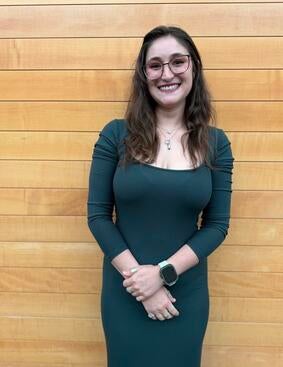
Samantha Assad is one first-generation student entering the biomedical sciences PhD program. Working in the lab of Devin Binder, MD, PhD as a UCR undergraduate, “They helped me figure out so many different things that I had no idea I even needed to ask about,” Assad recalled. Her mentors also encouraged her to apply to UCR’s graduate program.
An EMT who works in search and rescue in San Bernardino, Assad plans to study traumatic injuries with a focus on the local region, and eventually hopes to become a doctor. “We're in a desert, in more than one way,” Assad explained. “We're physically in a desert, but we're in a food desert, we're in a healthcare desert, we're in a county that, compared to the ones surrounding it, is drastically, drastically underserved,” she continued. “It's really, really vital that we go out into the community because that's what our research needs to be based on, and I plan on doing that by staying here.”
Attending the White Coat Ceremony, Assad said, was a dream come true for her and her parents: her father a first-generation immigrant from the Middle East and her mother a Native American. “It's never something that I thought would happen,” she said. “If it wasn't for them and their support I wouldn't be here, and it's an unreal feeling.”
The new students join the SOM at an exciting time during the 50th anniversary of biomedical sciences and as just the second class to enter the school’s new medical education building.
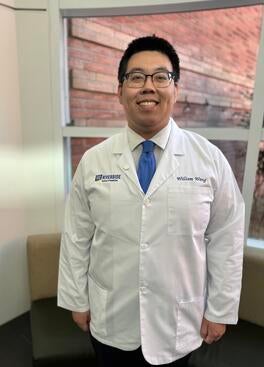
This year, 29 students are joining the class as UCR School of Medicine Thomas Haider Scholars. These students, who earned their undergraduate degrees at UCR, were selected based on their dedication to the local community, furthering the SOM’s mission of creating doctors who will improve medical care in the Inland Empire region. The Thomas Haider Program is supported by longtime SOM donors Dr. Thomas T. Haider and Mrs. Salma Haider.
William Wang, a Haider Scholar in this year’s class, decided to become a physician after seeing his brother cope with an opioid addiction and eventually pass away from a fentanyl overdose. “Because of that, I really thought that the psychiatry resources in the Inland Empire weren't enough,” said Wang, who was born in Loma Linda and now lives in Redlands. “That's really my main goal as a physician, to become a psychiatrist, specialize in addiction psychiatry, and hopefully prevent what has happened to my family and families all throughout the Inland Empire.”
"It feels amazing to be at White Coat,” Wang added. “It's the first step in a really, really long journey. I'm really hopeful and I'm excited for the future."
